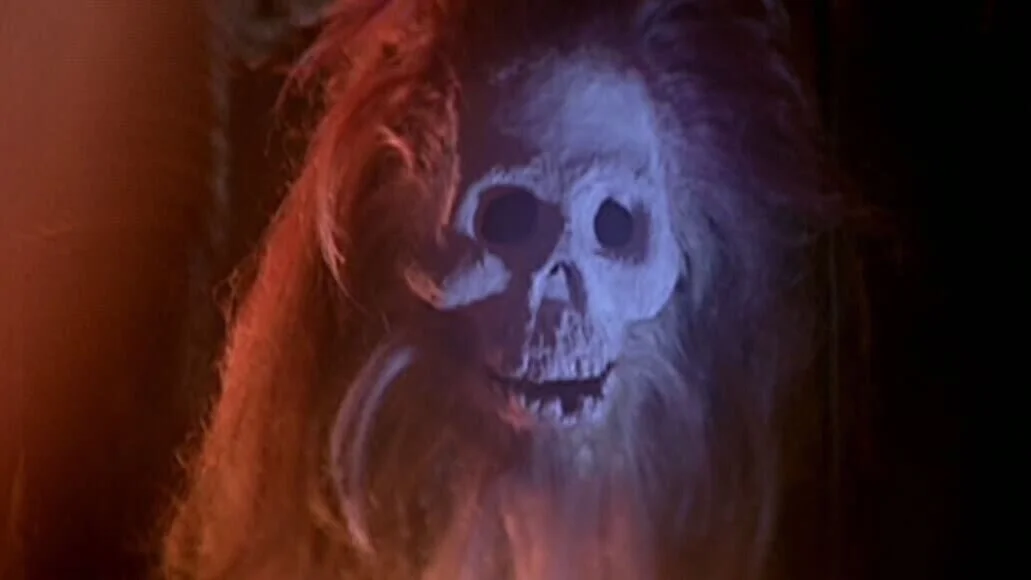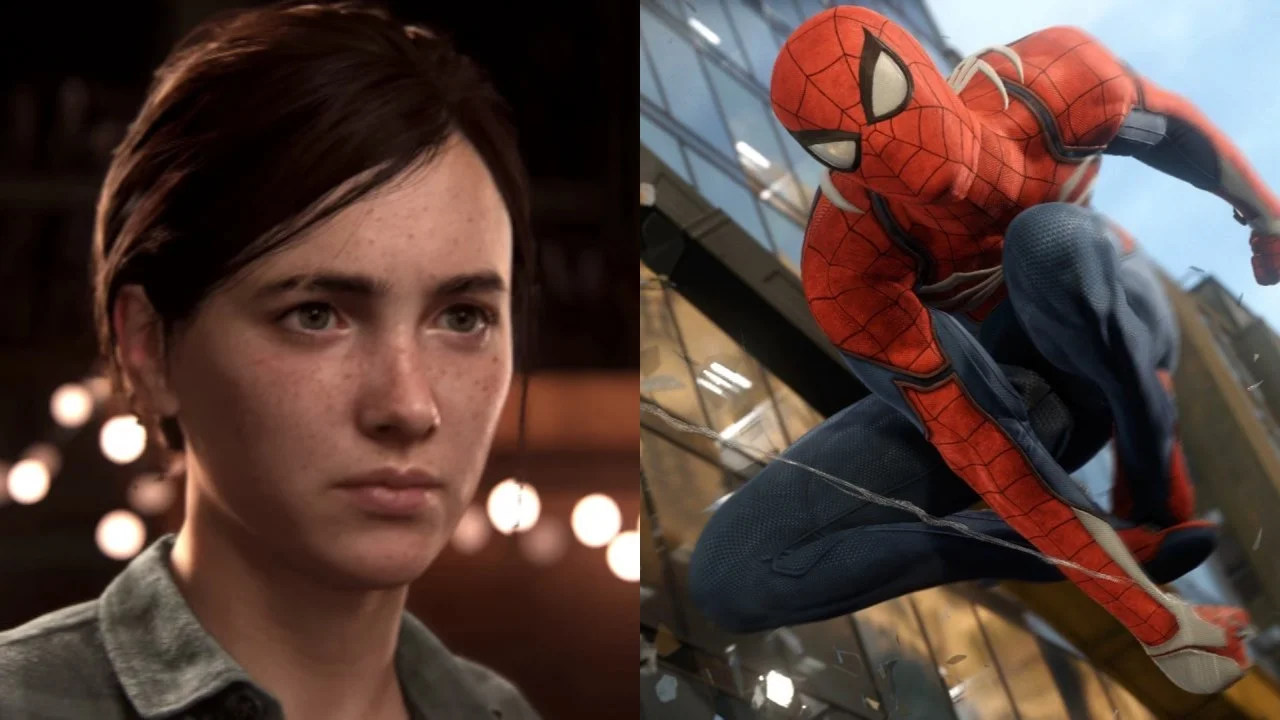A Wuxia Horror Primer
The world of wuxia films will always have a special place in my heart; the mind-blowing sequences of whirling swordplay and flying fight scenes, the convoluted stories of imperial intrigue and Chinese folklore, the threadbare but wholly effective visual flare, what's not to love? However, I learned that the world of chivalrous swordplay wasn’t limited and that wuxia had an even darker side to it; Chinese folklore is not without ghosts, witches, vampires, evil cults and sorcery, and better yet, all this spooky stuff often lived concurrently with the swordplay genre.
Imagine if Crouching Tiger, Hidden Dragon had white-haired witches who could make people explode, or if Zhang Yimou’s gravity-defying films featured flying ghosts with giant tongues that could strangle people? Well, there’s plenty of these wonderful, mind-blowing genre mashups to have come from Hong Kong over the years, here’s a taste...
Bride with White Hair (1993)
This is the eye-opening formative title for me. For the longest time, wuxia movies were relegated to classics like Come Drink With Me, King Boxer, and Dragon Inn, and Brigitte Lin was “that actor from Chungking Express.” But Ronny Yu’s seminal 1993 film The Bride With White Hair is a swirling saga of romance, sorcery, and balletic sword fighting, while the love story is Shakespearean in proportions. The horror elements are witchy, cryptic, but wildly imaginative. While The Bride With White Hair might be a product of its genre, it’s not simply a "genre product." Ronny Yu’s narrative (he also scripted the film) is rooted in the wuxia genre, but his execution is stately and surreal in a way that propels this seminal film into the upper echelons of the sorcery and swordplay genre. Brigitte Lin is phenomenal as the titular character, and Leslie Cheung is equally compelling as the lovelorn swordsman.
Chinese Ghost Story Trilogy (1987)
Maybe this is a cheat, seeing as it’s three movies, but Tsui Hark and director Ching-Siu Tung were capable of that rare ability to make a horror trilogy of equal parts, and in the pre-handover tradition Hong Kong cinema they were made fast, loose, and crazy and that’s the madcap charm that these movies exude.
This period set ghost story is rooted in classic Chinese mythology. A modest tax collector ventures to a remote town, stays in a deserted temple, and the spooky goings-on ensue. There are ghosts, tree demons, and sword sporting Taoist monks in this lightning-paced tale of unkempt lunacy, if that doesn’t sound crazy enough, there are giant tongues, magic swords that make shit blow up, flying severed heads, decapitations, flying kung-fu fights, and people occasionally break out into song and dance. And this is just in the first movie, the series just gets crazier!
Spooky Encounters (1980)
Sammo Hung, the fastest big-guy in the history of cinema, was trained alongside Jackie Chan in Peking Opera school and is an icon of Hong Kong cinema. Jackie might have been the clown prince of martial arts action but, unlike Sammo, Jackie never applied his comedic chops to something so...spooky.
Spooky Encounters, or Encounters of the Spooky Kind, is Sammo’s seminal kung-fu, comedy, horror flick that doles out equal portions of its wacky conceptual mission statement in spades. Written, directed, starring and choreographed by Hung, Spooky Encounters is brilliantly paced, fueled with voodoo, sorcery, and Hung’s trademark lightning fast action choreography. While there is no shortage of gags both creepy and silly, what makes it so singluar is its roots in Chinese mythology. riests can remotely control cadavers through sorcery and chicken eggs can ward away ill-mannered undead, who knew?
The energy, action, horror and slapstick comedy is all Sammo, but the cultural influence and folklore is what makes Spooky Encounters so unforgettable and fun.
Mr. Vampire (1985)
What do you know about Chinese vampire lore? Going into Ricky Lau’s 1985 classic Mr. Vampire, I knew precious little but walked away shortly afterward with an enlightened knowledge thanks to this beautifully insane and occasionally (intentionally) silly outing that wonderfully balances folk horror, slapstick comedy, and martial arts.
Lam Ching Ying plays a Taoist priest who is also an expert of otherworldly magic, presides over burial/funerary rituals. Heand his two bumbling assistants, Choi (Ricky Hui) and Chou (Chin Siu Ho), perform burial ceremonies that discourage restless corpses. When they come to the aid of a wealthy businessman to perform a reburial ceremony, they discover that their client’s relative is actually a vampire! The ensuing antics are more comical than scary, but the emphasis on physical humor, martial arts, and the rituals and practices of Taoism vampire lore make Mr. Vampire a classic of Hong Kong cinema. For newcomers to the genre, this would serve as a perfect jumping point as it’s one of the most popular movies of its kind, and has much well-posited exposition regarding the mechanics of Chinese vampires.or instance, they hop instead of walk, they bury their claw-like nails into the neck instead of biting, and can only detect people when they are breathing. There is more unique vampire trivia, but see the film for yourself to learn more. Ricky Lau’s direction is superb, as this not only kicked off a slew of sequels and spin-offs, but made Lam Ching Ying an even bigger star in the genre of mystical martial arts films that followed.
Magic Cop (1990)
A self-styled police investigator who is also an expert in Taoist rituals and mysticism must infiltrate a drug ring that is using zombie and vampires to traffic narcotics. Sound stupid? Well, it’s not an easy sell, but with Mr. Vampire star Lam Ching Ying in the titular role and the bristling energy that typify Hong Kong genre films, Magic Cop is an indelibly fun, if crazy contemporary spooky thriller. Where else would you find zombie drug smugglers, magic spells used by police and criminals, kung-fu fights with undead henchmen, and flying balls of fire battled by magic mirrors? Magic Cop is an unofficial sequel in the Mr. Vampire series, and is very much a contemporary continuation of that series with some added scope and ambition. Magic Cop sounds like nonsense, but it's damn fun and unlike anything you’re bound to see from anywhere else in the world.
We’re Going to Eat You (1982)
Perhaps one of the strangest movies featured here (and that’s saying something) and is a notable title for a few reasons. One is that We’re Going to Eat You is an unusual gory movie from Hong Kong; two, the film features an unabashedly lifted Goblin score from Suspiria; and most importantly, it was a formative and popular early title from prolific director, producer, actor and overall, Hong Kong cinematic titan Tsui Hark.
The plot is pretty simple, a secret agent wanders into a village populated by cannibals in his efforts to track down a criminal. This leads to all manner of hijinx, ranging from slapstick, action, all the way to gross-out level of gore. We’re Going to Eat You is a surreal cocktail that is tailormade for any self-respecting gorehound, a curiosity for horror fans, and a must for Hong Kong cinema completists. Casual viewers might squirm (and that might be the point as Tsui Hark was anything but subtle) but his style at this early point in his career was vibrant, energetic, and edgy, We’re Going to Eat is a strange one, but remains a standout title in the world of Hong Kong horror.
Human Skin Lanterns (1982)
A more notable cult item, Human Lanterns is a rare case of high-grade exploitation that handsomely executes its bizarre premise while wholeheartedly doling out a modicum of other goods as well. A later title from the famed Shaw Brothers studio, Sun Chungs 1982 film has it all, a macabre narrative centerpiece that features a twisted craftsman who makes lanterns with you guessed it, human skin. While being a full-blooded horror film, this stately production delivers plenty of flying swordplay, lavish sets, dedicated acting (especially from Lo Lieh as the sinister lantern maker), imperial intrigue, and it all has the beautiful, studio-bound touch that made Shaw Brothers Productions so emblematic in Hong Kong’s rich cinematic history.
Fire Dragon (1994)
Fire Dragon proved to be a pleasant little surprise that, on the outside looks like another routine wuxia flick, but much to my delight this earlier directing effort from Yuen Woo Ping features a later era Brigitte Lin performance, some expectedly magnificent fight choreography, as well as some witchy sorcery as a bonus. The plot is fairly standard. Government corruption andsword fighting, but Fire Dragon features some high flying martial arts and swords that shoot fire. Yuen Woo Ping’s 1994 picture might fall closer to the fantasy side of things, but its darker tone in direct opposition to the more heroic themes in wuxia films makes it feel more akin to a dark fantasy with horror elements But it isut still a unique and compelling Hong Kong film from the nineties period of the Hong Kong New Wave.
Golden Swallow (1987)
I’m going to preface this by saying that Golden Swallow is more or less a knockoff of Ching Siu-Tung’s A Chinese Ghost Story. But sometimes, knock-offs or imitations can be just as fun, if not more so than the material that inspired it. While that isn’t exactly the case for Golden Swallow, the film is still a fun outing that plays its cards well enough to feel familiar without being too derivative. The insanity that defines A Chinese Ghost Story is toned down here, and Golden Swallow’s more restrained execution plays well, with more time for atmospheric horror. That’s not to say there’s a shortage of wild swordplay, horror, mythical sorcery, and romance - one thing I love about Hong Kong filmmaking is their ability to shamelessly exploit a film market, and without Ching Siu Tung we wouldn’t have a great little oddity like Golden Swallow to enjoy!
Deadful Melody (1994)
Quentin Tarantino once said that “Brigitte Lin is like the Greta Garbo of Hong Kong cinema,” and I’m inclined to agree. She’s got that statuesque form that’s enigmatic and somehow dangerous, while carrying a classic sense of beauty. This means she could literally play anything with utter conviction. In Deadful Melody, she’s the mythical guardian of a magical lyre whose very tones can make people die and devastate the very kung fu world as we know it. Some clans are out to destroy it, others are out to capture the lyre for their own sinister agendas, and this culminates in a myriad of epic fight scenes loaded with flying, explosions, swords, and other macabre goings-on that Deadful Melody, a darker wuxia outing that is unforgettable.






















